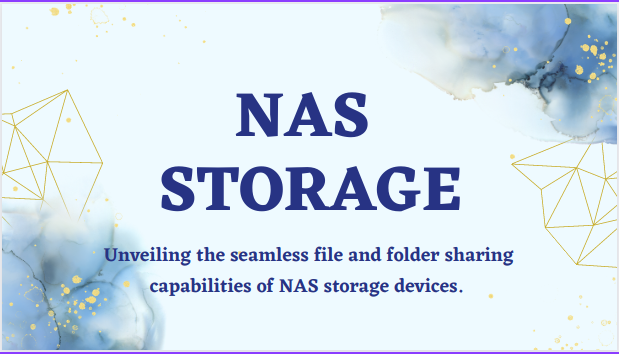What is NAS and where it is used?
- Scale out nas
- Sep 25, 2023
- 2 min read
The world of storage technology is always evolving, and with each advancement comes new terminologies. One of such terminologies that has gained prominence over the years is NAS. NAS, which stands for Network-Attached Storage, has become popular for its versatility in storage solutions. But what is NAS, and where is it used? In this article, we will take you through everything you need to know about NAS.

What is NAS?
Network-attached storage (NAS) is a storage device that connects to your network. NAS is essentially a hard drive that is designed specifically to store and access a vast amount of data from multiple devices connected to a network. The device is accessed using a network connection, which can be wired or wireless. NAS is built with central management capabilities, file sharing, backup, and security features, making it an excellent solution for personal and enterprise storage needs.
Where is NAS used?
NAS is used in many business and personal settings as it offers users flexibility in storing and managing data. Here are some of the industries where NAS is widely used:
Small and medium-sized businesses (SMBs) – Many SMBs use NAS to store, share, and manage data centrally. NAS provides these businesses with a cost-effective way of consolidating their data without spending a considerable amount of money on expensive storage systems.
Photography and videography – Professional photographers and videographers require massive storage space to store and manage their data from many devices. NAS provides them with a centralized location, where they store and manage their work.
Home use – NAS is also suitable for personal use. It provides users with a reliable solution for storing their data, backups, and sharing media files with family and friends. It is also an excellent solution for home offices, which require access to central storage.
Education – Many educational institutions use NAS to store their data centrally. This makes it easier for students and staff to access and share data across different devices within the institution.
Healthcare – Hospitals, clinics, and healthcare facilities use NAS to store patient information, images, and other health-related data. NAS provides them with central storage, which keeps the data secure and easily accessible.
Benefits of NAS
Using a NAS device has numerous benefits, including:
Centralized storage – NAS offers users centralized storage, making it easier to store, share, and manage data.
Easy data backup – Data backup is easy with NAS as it comes with built-in backup tools like RAID and backup software.
Enhanced security – NAS provides robust security features that keep your data safe from unauthorized access.
Scalability – NAS devices are scalable, allowing users to increase storage capacity as their storage needs increase.
Conclusion
Network-attached storage (NAS) is an excellent solution for centralizing storage, data backup, and data management. It is widely used across different industries, including small and medium-sized businesses, healthcare, education, and personal use. With its central management, file-sharing, backup, and security features, Enterprise NAS provides users with a cost-effective way of consolidating their data without spending a considerable amount of money on expensive storage systems. If you're looking for a reliable solution for centralizing your data, NAS is the way to go.



Comments